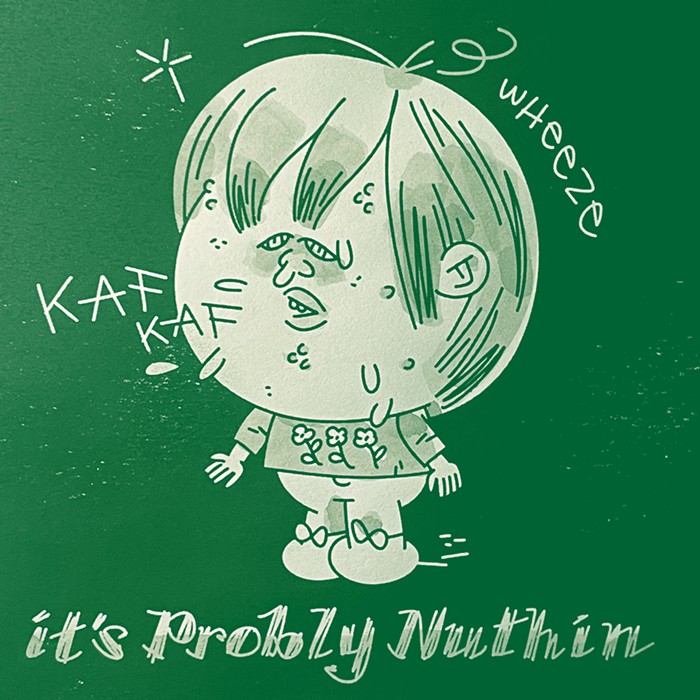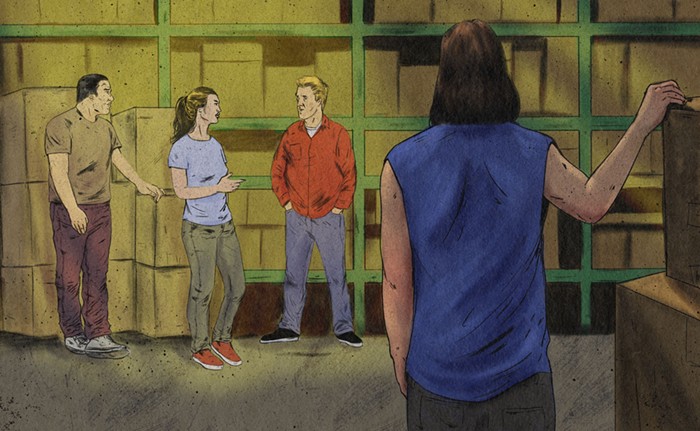
With the push of a button, I was well on my way to enjoying my night out at the movies. The slightly awkward adjusting of my spacious seat-desk at Regal Cinemas last night didn’t deter me from getting comfortable, and I was soon ready for the traditional merry-go-round ride of previews before enjoying the main feature: The Incredibles 2. After seeing Bumblebee’s attempt to bring Transformers back to life yet again (including a Shape of Water-esque underwater embrace with the young female protagonist), the promise of an “epic conclusion” to the How To Train Your Dragon series, and the cyborg toy brick dystopia of The LEGO Movie 2: The Second Part, I needed a break from the onslaught of franchise teasers and trailers.
With Bao, Domee Shi’s Pixar short, I found just that.
From the erhu’s first notes (also known as a Chinese violin), I began to feel even more at home in the crowd of strangers around me—one such moment was when I made some small talk with a Filipino audience member who also shared in my enthusiasm for seeing an Asian story on-screen.
For those who have yet to see the eight-minute-long short, Bao (named after the traditional Chinese bun) follows the relationship between a Chinese mother and her dumpling offspring, who comes to life one evening mid-bite. Their life together shows many scenes that are commonplace to Chinese people, and many people of Asian identities—the duo is seen attending tai chi practice in the park, shopping for bargains at the Asian market, and indulging their sweet tooth at the traditional confectionery/sweets shop—that brought a previously unrealized familiarity and visibility to the silver screen that had me in tears by the short’s end.
While Bao is a specifically Chinese story (Domee Shi, who is also the first woman to direct a Pixar short, is a Chinese Canadian and based much of the short on her own experiences), this short film poignantly and compassionately captured the joys and heartbreaks of growing up in an immigrant family. While the unnamed mother figure acts as the main protagonist of the short, her dumpling son’s desire for independence and an identity separate from his background is also equally visible as he soon chooses soccer over tai chi, rejects his mother’s massive home-cooked feasts to instead go out for a drive with his friends, and (spoiler alert) brings home a white fiancée.
For such a brief film, there was so much that was brought to the table (pun definitely intended—the food featured throughout Bao had me drooling). The attention to detail throughout this short and sweet story highlighted not only an immigrant story, but the story of an American-Born Chinese, or “ABC” child and young adult. (For those unfamiliar, American-Born Chinese, or “ABC,” is a term that refers to someone born in America, but of Chinese descent.) As a nisei (this is specific to people who were born in North or South America to Japanese immigrant parents) Japanese mixed-race American, this was a nuance that brought back bittersweet memories of similar heartbreaks and pitfalls in my relationship with my Japanese mother.
It goes without saying that these experience will not be understood by everyone. It is absolutely fine to acknowledge that you don’t understand something. While it is disappointing to see tweets from white viewers that describe a very clear, heartfelt film as “confusing,” or take the conversation in a derogatory, racist, or xenophobic direction, it is doubly so because of seeing that people do not know how to respond to their own questions or doubts about another culture.
It is entirely natural to experience confusion over something that doesn’t meet the stereotypes or assumptions that surround another culture. However, as people experience these new representations, it is important to acknowledge that how those questions are addressed and presented has a significant impact, especially on the people who are witnessing a reflection of their identities and experiences for the first time on such a major scale.
This is not culture policing, tone policing, or policing of any kind—Bao is one of many efforts that contributes to a collective calling for representation and dialogue that puts people of color at its center, and that allows those who have never had a seat at the table the opportunity to share in and express their experiences. There are people who will always resist these conversations, but there are many more who already enjoy, appreciate, and want to explore and understand these new cultural experiences.
After hearing a barrage of audible “awwwws,” laughter, and plenty of sniffling, I let myself melt into the seat and wiped away happy tears as the Incredibles family finally made their return to the screen. Eight minutes was all it took for Bao to steam my heart into a happy warmth, and the same amount of time it took for me to warm up a plate of gyoza when I got home that night.
From one culture to another: itadakimasu!


















